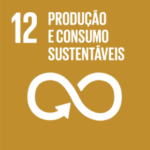
At El Corte Inglés, used clothes get a new life
El Corte Inglés and To Be Green, a spin-off from the University of Minho, have joined forces inan unprecedented partnership, to produce 300 new articles
We didn't find any happenings mapped to your criteria.
Try the traditional search to find articles not yet mapped with RUA.
We didn't find any happenings mapped to your criteria.
Try the traditional search to find articles not yet mapped with RUA.
We didn't find any happenings mapped to your criteria.
Try the traditional search to find articles not yet mapped with RUA.
We didn't find any happenings mapped to your criteria.
Try the traditional search to find articles not yet mapped with RUA.
France is making history when it comes to clothing production. The main measures include a ban on advertising cheaper textiles and an environmental tax on low-cost items. The bill now goes the Senate to be voted.
The French parliament has approved a series of strict measures to limit disposable, mass-produced and low-cost fashion – which falls into the category of ultra-fast fashion, with Shein and Temu being the best-known examples.
Fast fashion advertisements will be banned, producers will be obliged to inform consumers about the environmental impact of their production and sanctions will be imposed on low-cost clothing to cover their environmental impact, making them less attractive.
Starting next year, a surcharge of €5 per item of clothing with a large ecological footprint is planned, which will increase to €10 by 2030. However, the fee cannot exceed 50% of the price of the item.
The fines will be used to subsidize French producers of sustainable clothing,enabling them to be more competitive, and to fund waste management, clothing repairment awards and public awareness campaigns.
The bill, presented by deputy Anne-Cécile Violland of the Horizons party, was passed unanimously, but still needs to be voted on in the Senate before becoming law. France could thus become the first country in the world to legislate to limit the excesses of ultra-fast fashion.
According to the news agency AFP,the French clothing market has been flooded with cheap clothes imported from Europe (from brands such as Zara and H&M) and China (such as Temu and Shein, which produces 7 200 new garments a day, according to Violland), while several national brands have declared bankruptcy.
The aim is to limit the pollution associated with cheap, imported clothing, promote environmental protection, encourage the reuse and repair of clothing to combat the culture of waste and, at the same time, safeguard the French textile and haute couture industry by curbing the unbridled pace of fast fashion.
To determine what constitutes “fast fashion”, France will apply criteria such as the volume of clothes produced and the speed of rotation of new collections. The exact criteria will be published in a decree when the law comes into force.
“Ultra-fast fashion is an ecological disaster: the clothes are badly made, bought in large quantities, rarely worn and quickly thrown away,” said Christophe Béchu on the social network X. The deputy supports the proposal to ban advertising for fast fashion products, including through social media influencers, and to establish ecological sanctions for clothing.
Béchu is also in favor of fast fashion brands providing more information to consumers about the environmental impact of their clothing and argues that they should encourage consumers to reuse items.
However, the French Minister for the Ecological Transition, Christophe Béchu, recalled in an interview with franceinfo that “everyone is responsible” for their consumption.
The bill comes at a time when the French Environment Ministry announced that it would propose a ban on the export of used clothing in the European Union, in an attempt to tackle the growing problem of textile waste.
In 10 years, the number of garments sold annually in France has increased by one billion, reaching 3.3 billion products (more than 48 per inhabitant), according to the ecological organization Refashion.


El Corte Inglés and To Be Green, a spin-off from the University of Minho, have joined forces inan unprecedented partnership, to produce 300 new articles

In California, clothing and fabric producers will have to take responsibility for the entire life cycle of their items, thanks to new legislation. New legislation

Although mechanical recycling is the most widely used method, it cannot deal with multi-fiber textiles. The new approach promises to effectively recycle this waste, and

This article promotes an action that encourages the reduction of waste generation through prevention, reduction, recycling, and reuse.
➡️ To discover more businesses that are aligned with Sustainable Development Goal 12 “Sustainable Production and Consumption” click here.
➡️ For news, tips and interviews about this topic, click here.
➡️ Want to know more about the 17 United Nations Sustainable Development Goals? Click here
Esta publicação também está disponível em:
![]() Português (Portuguese (Portugal))
Português (Portuguese (Portugal))

